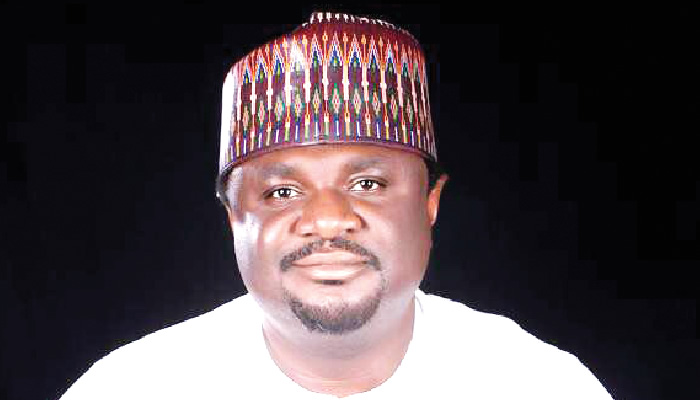Conrad Utaan, an aspirant for the chairmanship of the People’s Democratic Party (PDP), has raised serious concerns regarding the future of the party if it continues to grapple with its internal disputes. Speaking to journalists in Abuja, he pointed out that the ongoing strife among party members could allow the All Progressives Congress (APC) to smoothly secure another term in the 2027 elections. Utaan observed that the leadership challenges faced by the PDP, especially leading up to the 2023 presidential election, significantly contributed to its disappointing performance, where its candidate, Atiku Abubakar, lost to the incumbent, Bola Tinubu of the APC. He emphasized that the internal crisis has resulted in key figures within the PDP becoming ineffective, stalling the party’s revival and damaging its reputation as a credible alternative to the ruling party.
Utaan attributed much of the current turmoil to the party’s acting National Chairman, Umar Damagum, who has not effectively revitalized the PDP after stepping into his position following the removal of Senator Iyorchia Ayu. The aspirant called for the North Central region of Nigeria to assert its claim to the party chairmanship, arguing that the party’s governance can only improve through a leadership that genuinely represents the North Central interests. He noted that his aim is not to become chairman for the full term, but rather to complete the existing term of the party, underscoring the importance of regional representation and stability in the PDP’s organization.
Despite acknowledging the prolonged internal crises, Utaan insisted that the North Central region should put forth a replacement for Damagum at the upcoming National Executive Committee meeting scheduled for October 24. He lamented that the current leadership arrangement has left his region with insufficient representation, especially when compared to the North East, which holds both the Deputy National Chairman and the National Chairman positions. Utaan advocated for a fair opportunity for the North Central to reclaim its rightful role in the party’s leadership structure, suggesting that ignoring this issue would further complicate the party’s internal dynamics and electoral prospects.
Utaan further positioned himself as a candidate untainted by the baggage that often comes with previous high office, presenting himself as an alternative leader capable of fostering peace and reconciliation within the party. He expressed his readiness to engage all stakeholders without ego, seeking to restore unity to the PDP, which he described as paramount for regaining political power in Nigeria. Utaan stated that he would not hesitate to seek support from prominent figures within the party, acknowledging the need for a collective effort in achieving harmony and progress.
Claiming that he possesses the necessary qualifications and grassroots connection to lead the PDP effectively, Utaan conveyed his belief that a fresh approach is essential to resolving the party’s longstanding leadership issues. His focus is on engaging directly with the ordinary party members, which he believes could reignite passion and commitment within the PDP. Utaan reflected on his interactions with various layers of party leadership, stressing that his message has resonated well and that he seeks to be a unifying force capable of rallying the North Central region and, by extension, the entire party, towards a common goal.
In conclusion, Utaan’s candidacy is built on the premise of driving reconciliation, revitalization, and representation within the PDP. His emphasis on grassroots connection, humility, and openness to collaboration with established party figures highlights a strategic pivot towards addressing both internal conflicts and external electoral challenges. With the prospect of the APC benefiting from the PDP’s turmoil, Utaan’s urgent call for change and collective efforts may serve as a crucial turning point for the party as it approaches the 2027 elections. As he positions himself as the beacon of hope for the PDP, the outcomes of upcoming meetings and decisions will significantly influence the party’s trajectory and potential resurgence in Nigeria’s political landscape.














